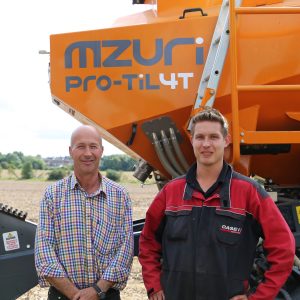 Mzuri Ambassador
Mzuri Ambassador
Charles and Will Pearson
Area farmed - 530 acres
Type - Arable and Livestock
Soils - Medium Clay Loam and Heavy Clay Loam
Cropping - Winter Barley, OSR, Winter Wheat, Winter or Spring Beans, Wheat, Spring Barley, Winter Barley
Machines - Mzuri Pro-Til 4T, Mzuri Rehab Subsoiler, Rolls, Case 240, Simba Xpress
From Plough to Pro-Til: The Transformative Mzuri Journey at Cockhill Farm
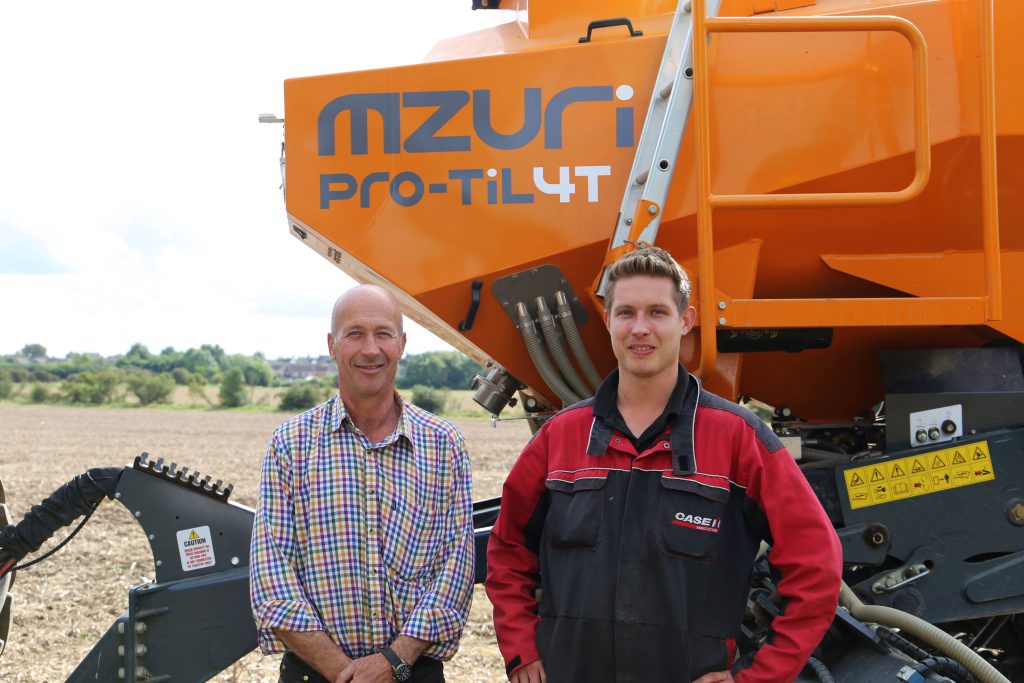
Charles Pearson (right) and Will Pearson (left)
In the heart of Morpeth, a family farming enterprise is proving that innovation and a commitment to sustainable agriculture can go hand in hand. Charles Pearson took the reins of Cockhill Farm in 1987, land in which his roots were deeply intertwined, having grown up on the neighbouring farm, which his family have rented since the 1960’s and continue to do so to this day. This now 530acre operation boasts a diverse mix of arable and livestock farming activities, all managed by Charles and his son William. Moving away from traditional cultivation methods, the farm is now a thriving business using Mzuri technology.
Before embracing the Mzuri Pro-Til drill, Pearson’s farming practices involved a traditional approach, including ploughing, a Simba UniPress, and a Varderstad drill. Operating within a four-year crop rotation system, some of his fields posed a unique challenge due to their heavy clay composition, requiring three rounds of pressing before seeding with the Varderstad. This laborious process consumed costly amounts of fuel and precious time.
The Turning Point
In 2016 Charles anticipated the retirement of a tractor operator on his farm. Recognising the need for greater efficiency in light of a two-man workforce, Charles embarked on a quest to find the right equipment. His search led him to the Mzuri system, and upon discovering that it was manufactured here in the UK, he wasted no time in arranging a demonstration.
That same year George from the Mzuri Sales Team conducted a demo using the Pro-Til one pass drill, for Charles this marked the beginning of his Mzuri journey. A 15-acre field served as the testing ground going into a second Wheat, while the conventional method involved ploughing and multiple passes with the Varderstad drill, the Mzuri Pro-Til 3T streamlined the process significantly in a single pass. Charles admitted that the Mzuri-sown plot didn’t appear as thick during the winter and spring months. However, as summer rolled around, the Wheat ears on the Mzuri-drilled crop grew noticeably larger. Surprisingly for Charles, the Pro-Til consumed only 15% of the fuel compared to the conventional method. At harvest, both plots yielded the same, leaving Charles suitably impressed that Mzuri had achieved equivalent results with less labour and fuel. This sealed the deal for Charles who was now intent on changing his practices to incorporate Mzuri technology.
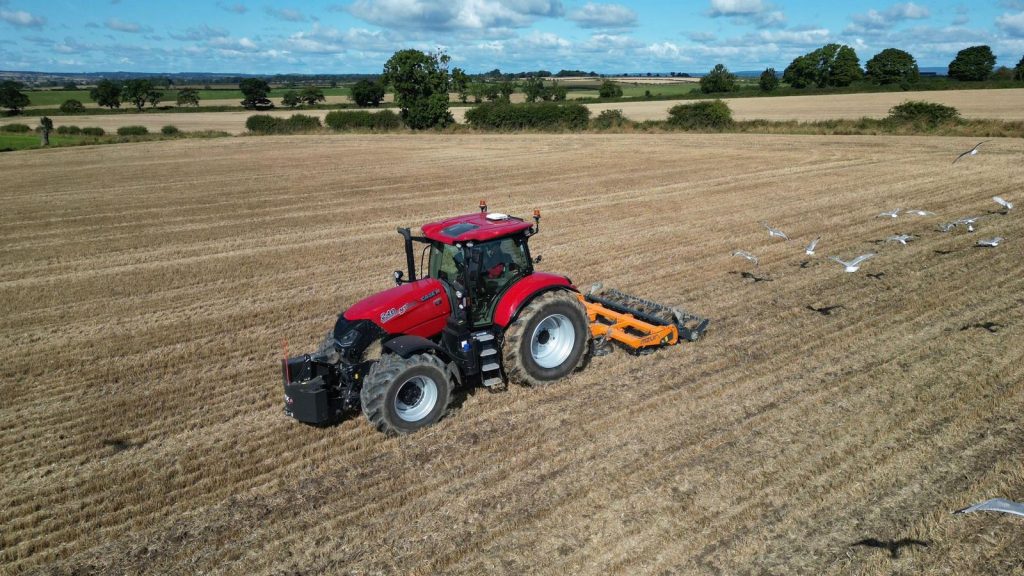
The Pearson’s operating their Mzuri Rehab Low Disturbance Subsoiler
Charles’s keen eye also detected a critical issue in his former farming system: ploughing left straw in furrows, indicating inadequate decomposition and anaerobic soil conditions. Recognising the compaction challenge, Charles wished to invest in a subsoiler but faced budget constraints at the time. Thus, he opted for a mounted Mzuri Pro-Til and Mzuri Rehab subsoiler.
Expanding Horizons
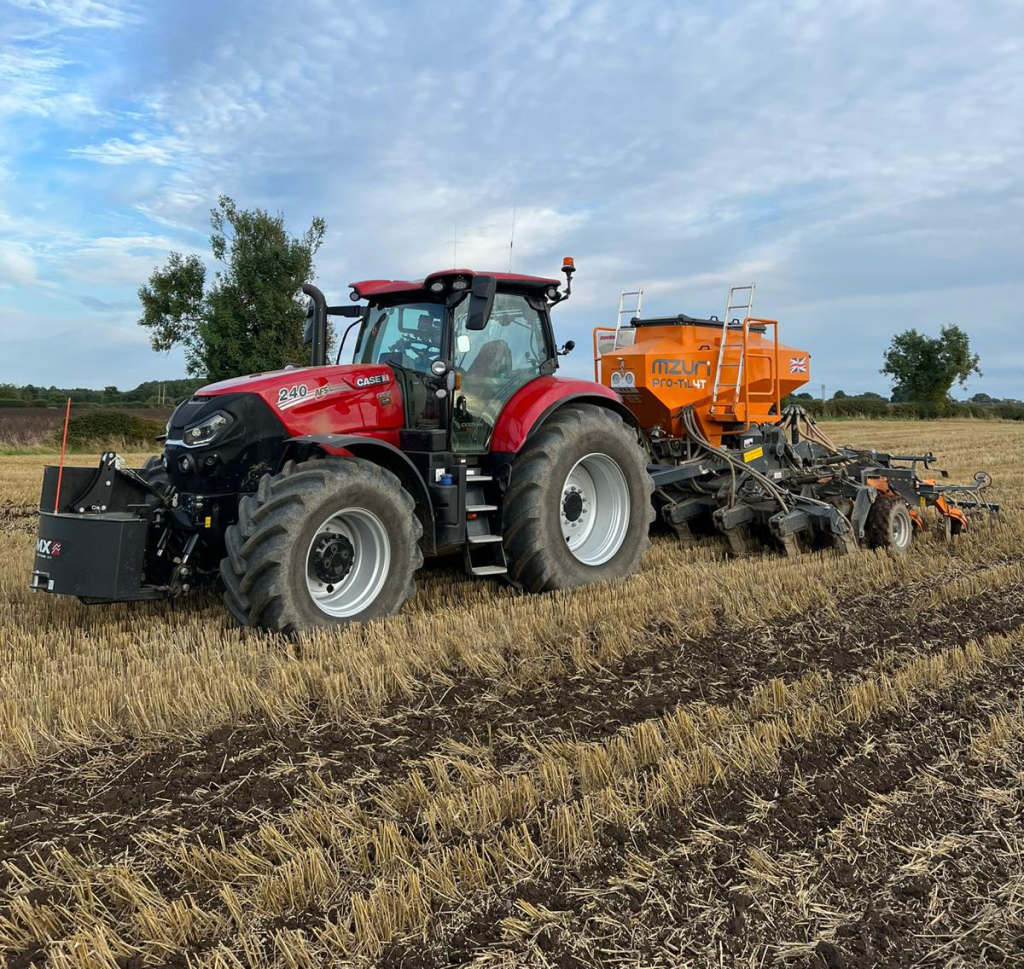
Case IH Puma 240 featuring the Mzuri Pro-Til 4T
In the autumn of 2020, the Pearson family were approached to carry out contract drilling by a local farmer. Charles had expressed his intention to upgrade to a 3M trailed drill, and the customer was so impressed with the Mzuri system that they made a gentleman’s agreement: Charles would upgrade to a 4M trailed drill in exchange for a guaranteed minimum acreage for contract drilling. This fruitful collaboration saw the Pearson family covering over 1,100 acres in the first year, while also carrying out contract work for others, amounting to a staggering 1,500 acres due to the dry autumn in 2022.
One standout feature of the Mzuri system for Charles was the band placement of fertiliser, which he praised as brilliant. The precise nutrient placement facilitates strong root development from the get-go. He also commended the drill’s robust build, contrasting it with machines that, over time, tend to break down due to fatigue.
Charles commented: “One person in one tractor is doing six jobs in one pass with the Pro-Til”.
Another favourite aspect is the hydraulic rear harrows which Charles adjusts to match soil conditions, lifting them in light soils to prevent further seed depth penetration and lowering them in heavier soils to ensure optimal soil-seed contact.
A Transformative Impact
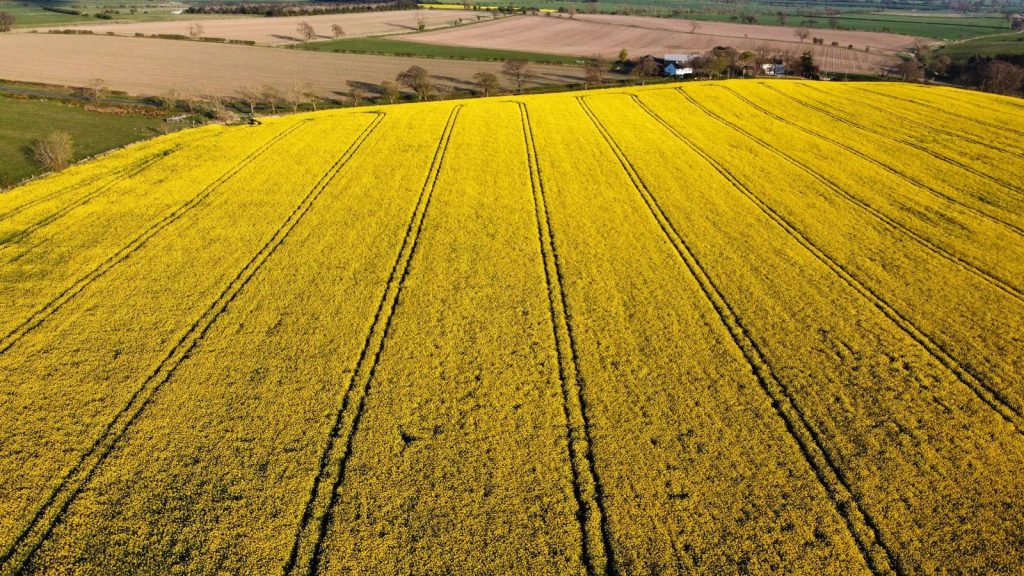
Oilseed Rape established using the Mzuri system
“When we used conventional establishment methods, we used on average 35ltrs/acre of fuel. When drilling with the Mzuri Pro-Til, the soil structure has improved so much over the years we now use on average 5ltrs/acre of fuel, and it can go as low as 4ltrs.” Charles summed up the Mzuri system’s impact, stating, “With the Mzuri system, we have maintained our yields and cut 75% off establishment costs; it’s a no-brainer.”
Over the years, Charles has witnessed the remarkable improvement in soil structure attributed to the Mzuri system. When upgrading farm drainage, he observed profound changes in soil layers, with roots penetrating deep into the clay and a significant increase in broken aggregates.
Additionally, Charles noted a tenfold increase in worm activity since adopting the Mzuri system, indicating improved soil health. After comparing soil samples from the conventional and Mzuri-drilled plots in the Winter following the demo, Charles found ample worm activity and holes in the Mzuri plot, while the conventional plot exhibited minimal signs of life. Since implementing the Mzuri system, Charles has continued to see worm populations increase.
A Flourishing Ecosystem
The farm’s livestock operations, featuring 200 Texel X ewes, have also seen benefits. Lambed indoors around March, the ewes are bedded on around 40 round bales of straw. The majority of the straw is chopped and left on the field surface, leaving long stubble aligns perfectly with the dynamic Mzuri technology, preventing capping and soil erosion. Notably, Charles encountered no issues with the drill handling the straw volume.
Embracing modern technology, Charles uses Omnia through Hutchinsons for soil mapping and variable-rate chemical applications. Lime and fertiliser are applied with precision, and variable-rate sowing ensures uniform crop emergence across fields.
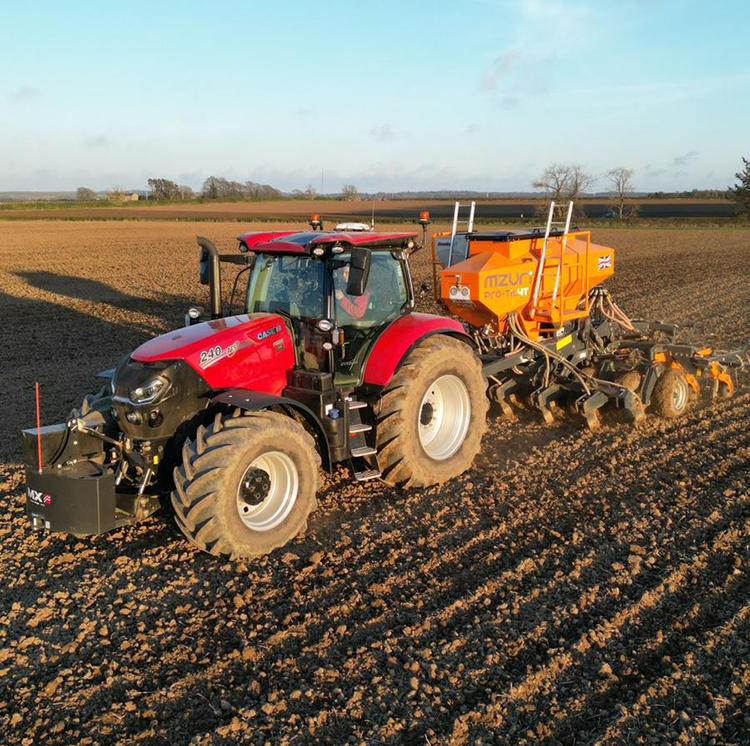
Will Pearson direct drilling with the Mzuri Pro-Til 4T
In closing, Charles Pearson’s journey with Mzuri has been transformative, revolutionising his farming practices and enhancing the health and productivity of his land. The Mzuri technology has not only streamlined operations but also demonstrated its environmental stewardship by promoting soil health and reducing fuel consumption. And, according to Charles, the excellent customer service from Mzuri is the cherry on top, with prompt part deliveries and an unwavering commitment to excellence.
In Charles words, “I cannot fault Mzuri’s customer service; there is no other company whose service is of such high standard.”
In the ever-evolving landscape of agriculture, Charles Pearson stands as a testament to the power of innovation and dedication to sustainable farming practices.









